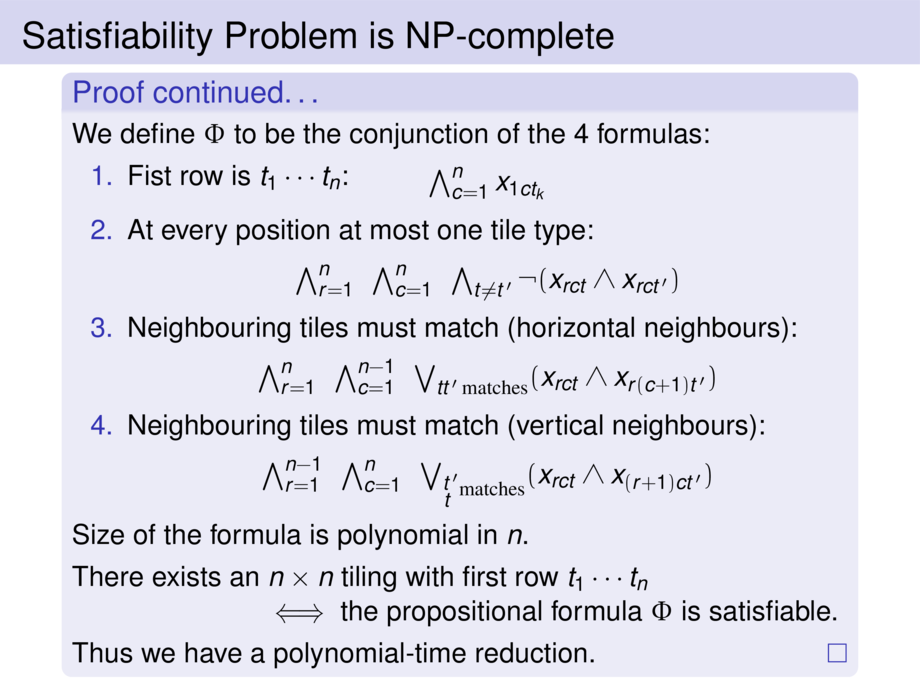



































































































87/122
\begin{frame}{Satisfiability Problem is NP-complete}
\vspace{-1ex}
\begin{block}{Proof continued\ldots}
We define $\Phi$ to be the conjunction of the 4 formulas:
\begin{enumerate}
\item Fist row is $t_1\cdots t_n$:\vspace{-3ex}
\begin{talign}
\textstyle \bigwedge_{c=1}^n x_{1ct_k}
\end{talign}
\item At every position at most one tile type:
\begin{talign}
\textstyle \bigwedge_{r=1}^n~\bigwedge_{c=1}^n~\bigwedge_{t\neq t'}\neg(x_{rct}\wedge x_{rct'})
\end{talign}
\item Neighbouring tiles must match (horizontal neighbours):
\begin{talign}
\textstyle \bigwedge_{r=1}^n~\bigwedge_{c=1}^{n-1}~\bigvee_{tt'\,{\rm matches}}(x_{rct}\wedge x_{r(c+1)t'})
\end{talign}
\item Neighbouring tiles must match (vertical neighbours):
\begin{talign}
\textstyle \bigwedge_{r=1}^{n-1}~\bigwedge_{c=1}^n~\bigvee_{\substack{t'\\\!\!t}{\rm matches}}(x_{rct}\wedge x_{(r+1)ct'})
\end{talign}
\end{enumerate}
\pause
Size of the formula is polynomial in $n$.
\pause\smallskip
There exists an $n\times n$ tiling with first row $t_1 \cdots t_n$ \\
\hfill $\iff$ the propositional formula $\Phi$ is satisfiable.
\pause\smallskip
Thus we have a polynomial-time reduction.\qed
\end{block}
\end{frame}

